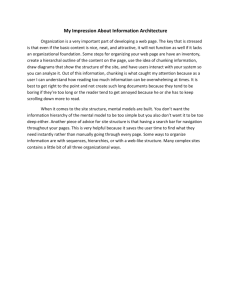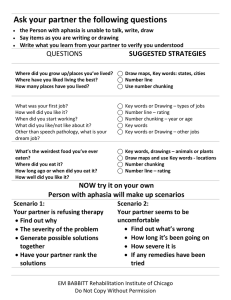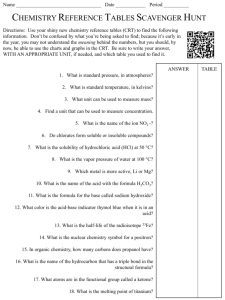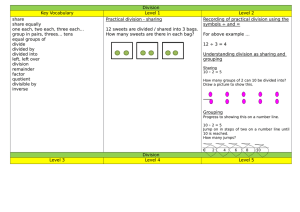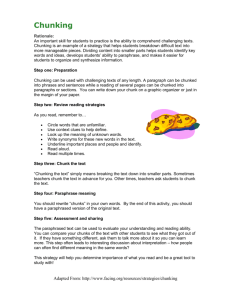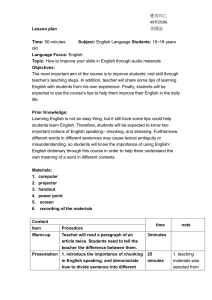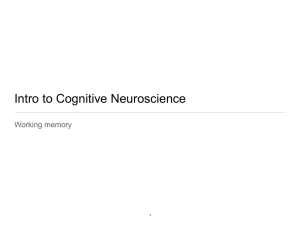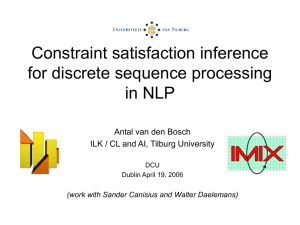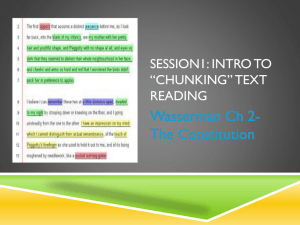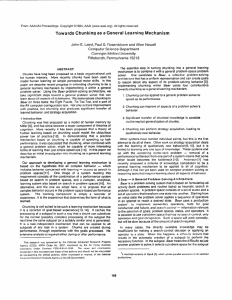9 Improve Your Memory
advertisement
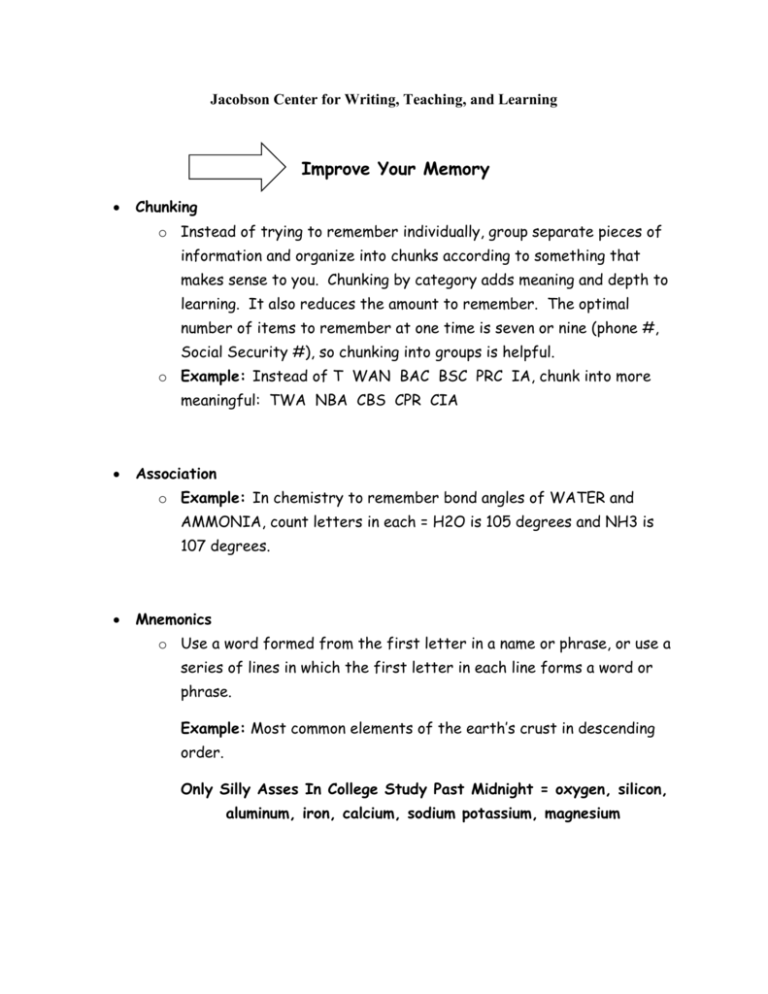
Jacobson Center for Writing, Teaching, and Learning Improve Your Memory Chunking o Instead of trying to remember individually, group separate pieces of information and organize into chunks according to something that makes sense to you. Chunking by category adds meaning and depth to learning. It also reduces the amount to remember. The optimal number of items to remember at one time is seven or nine (phone #, Social Security #), so chunking into groups is helpful. o Example: Instead of T WAN BAC BSC PRC IA, chunk into more meaningful: TWA NBA CBS CPR CIA Association o Example: In chemistry to remember bond angles of WATER and AMMONIA, count letters in each = H2O is 105 degrees and NH3 is 107 degrees. Mnemonics o Use a word formed from the first letter in a name or phrase, or use a series of lines in which the first letter in each line forms a word or phrase. Example: Most common elements of the earth’s crust in descending order. Only Silly Asses In College Study Past Midnight = oxygen, silicon, aluminum, iron, calcium, sodium potassium, magnesium Example: In chemistry for remembering 1, 2, 3 or 4 carbons Mom eats peanut butter = methane, ethane, propane, butane (or for methanol/methyl, ethanol/ethyl, propanol/propyl, butanol/butyl) Example: In chemistry for loss/gain of electrons OIL RIG = Oxidation is Loss, Reduction is Gain Method of Loci o Of ancient Green origin, this method was later used by Greek and Roman orators to memorize speeches. Story comes from 5th century B.C. when orator Simonides of Ceos left the banquet hall for a moment, and a natural disaster destroyed the building, killing those inside. He survived and identified the dead because he remembered where they were sitting or standing. The victims’ families could not have otherwise identified their bodies. o Imagine yourself in a familiar place (your house, room, drive to work). Visualize a series of locations within the place in a specific order and associate the item or word you want to remember with each location you visualize. “Pick up” the item as you take your mental walk. ©2010 Jacobson Center for Writing, Teaching and Learning, Smith College
